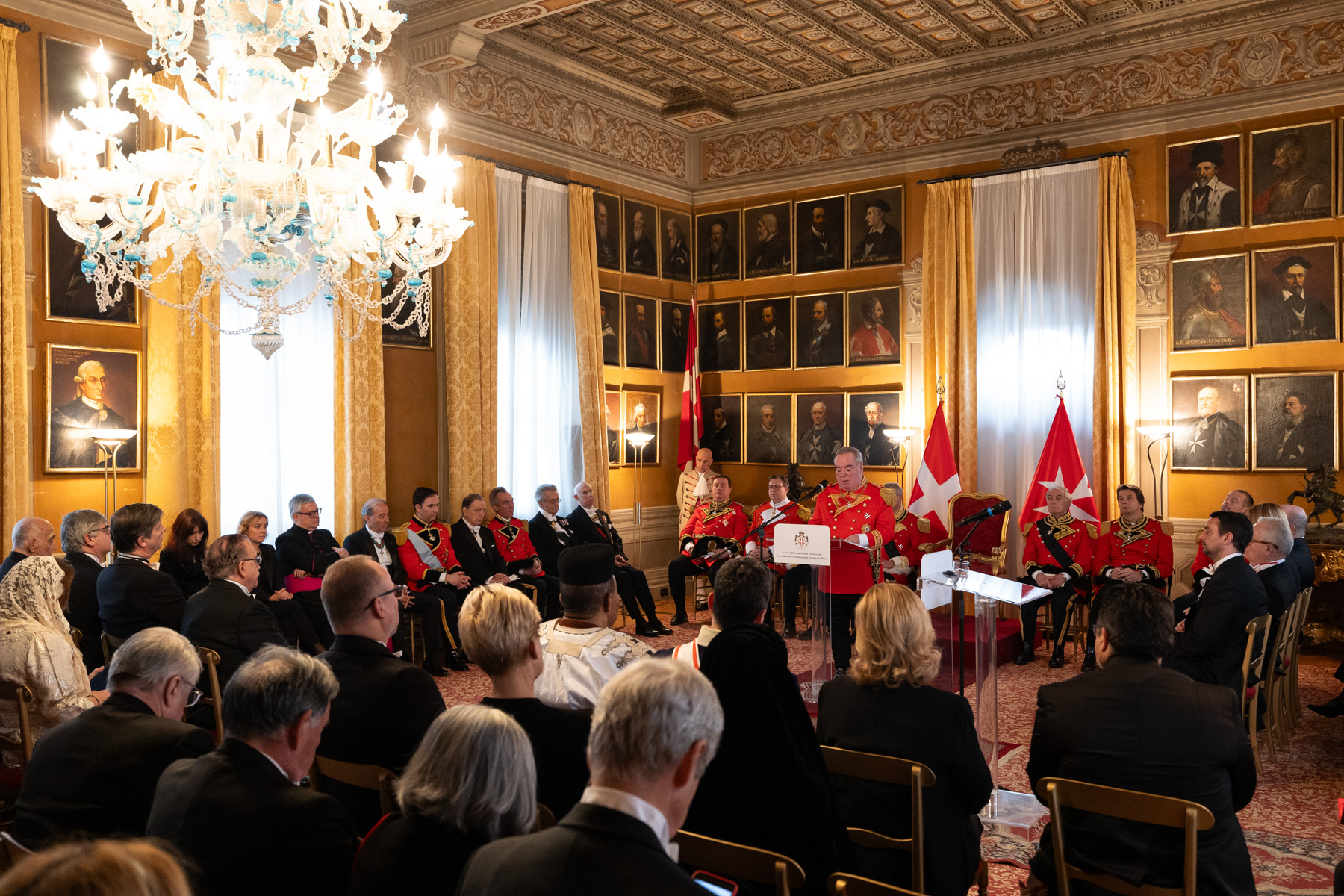(ZENIT News / Sovereign Order of Malta, 01.10.2024).- On Tuesday, January 9th, the Prince and Grand Master of the Sovereign Order of Malta (SOM), Frey John Dunlap, received the accredited Diplomatic Corps before the SOM at the Magistral Villa on the Aventine, which enjoys international recognition of extraterritoriality.
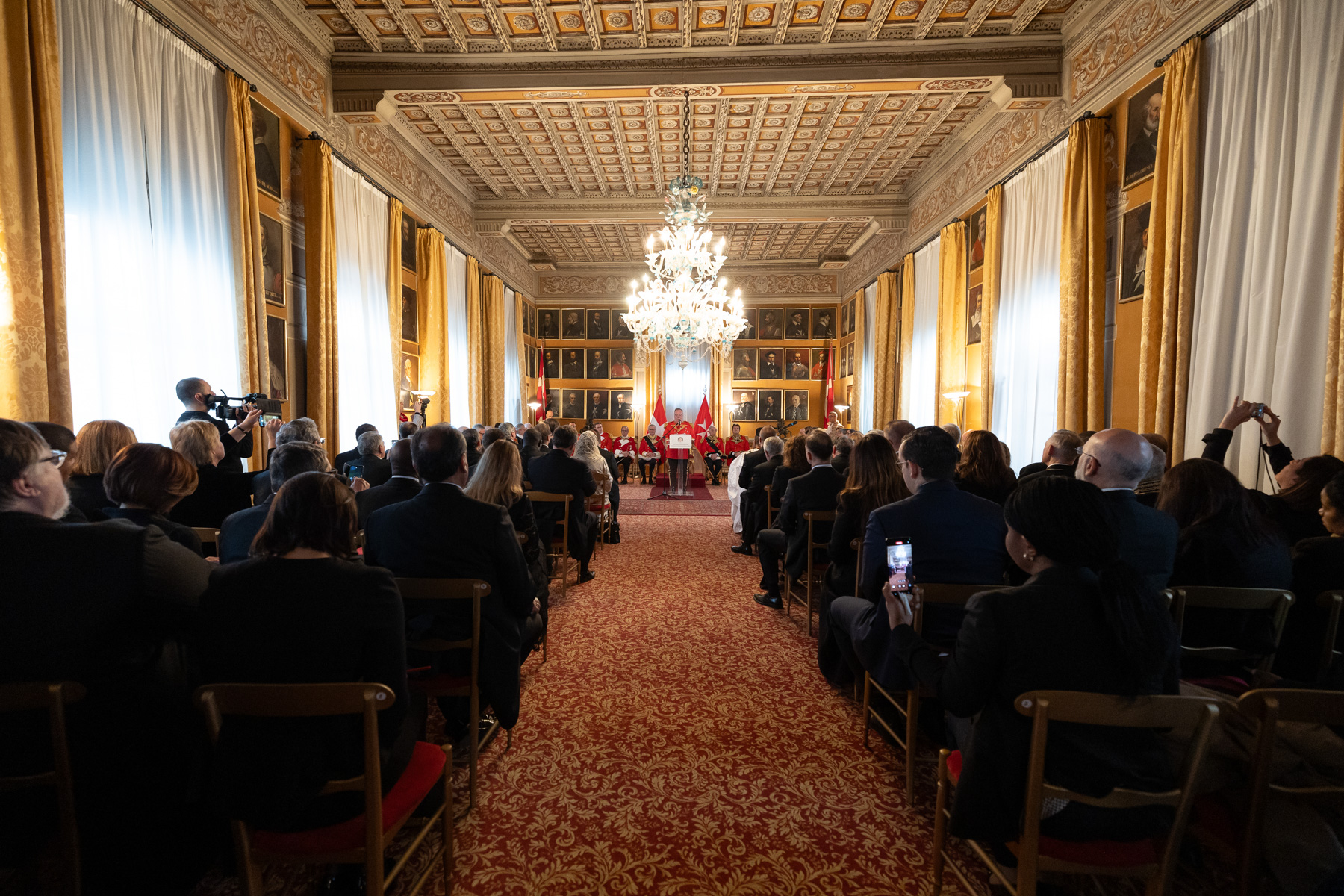
The annual meeting, typically held at the beginning of the year, commenced with the speech by the Dean of the Diplomatic Corps, Mr. Antoine Zanga, the ambassador of Cameroon. Subsequently, the Grand Master delivered his speech (which can be read in full in English here).
In his address, Frey John Dunlap remarked that many things had changed within the Order of Malta over the past year, beginning with a new government with a «reformist mindset» (sic).
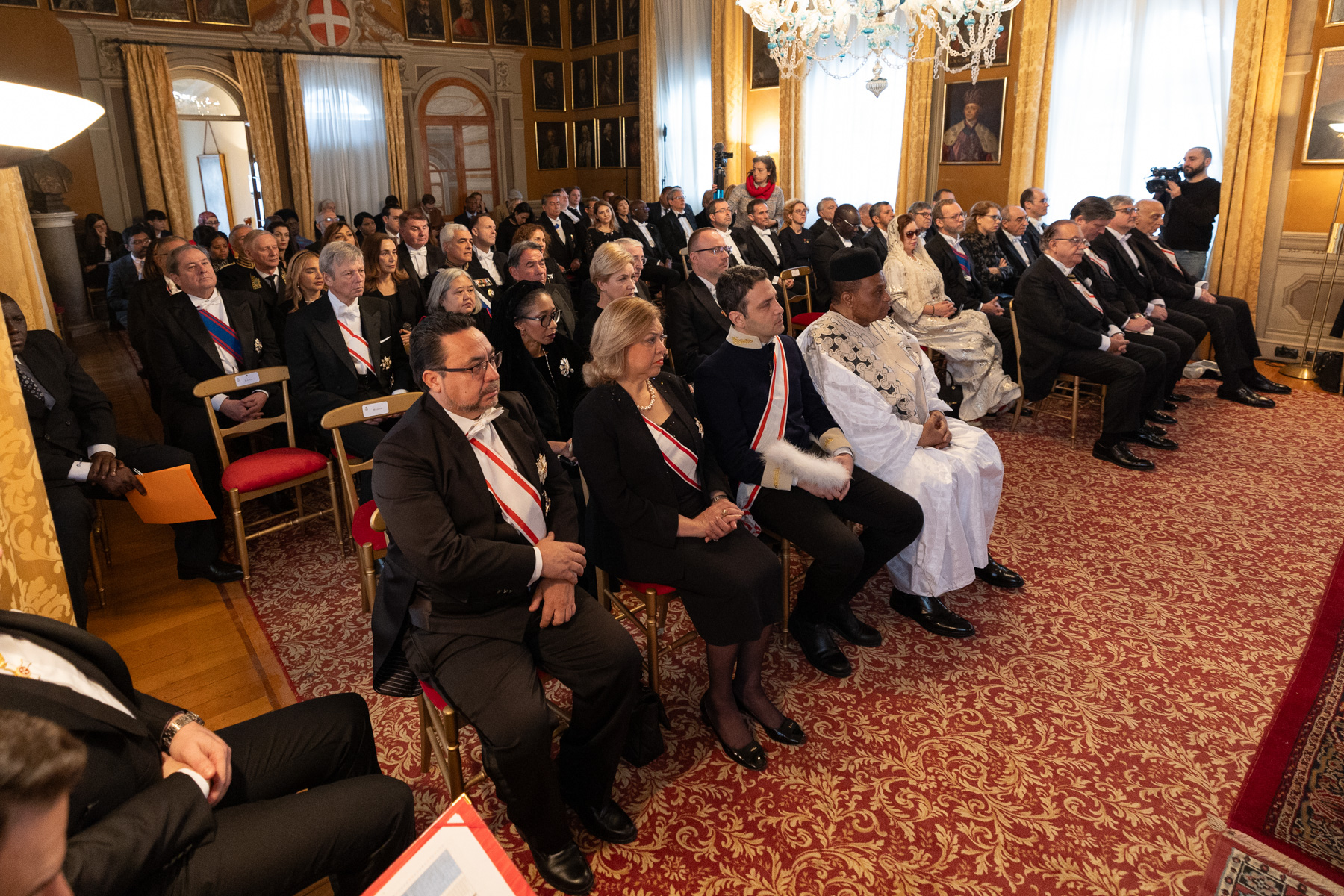
As of early 2024, the Order of Malta maintains diplomatic relations with 113 countries. In the last 40 years, it has expanded its diplomatic relations from 42 in 1981 to the current 113. The most recent addition is Gambia, with whom diplomatic relations were established in September 2023. The Grand Master stated in his speech that he has the mission of further expanding this diplomatic network.
The value of religious diplomacy
The Grand Master addressed, in part of his speech, what he termed «a little-known and addressed topic»: religious diplomacy.
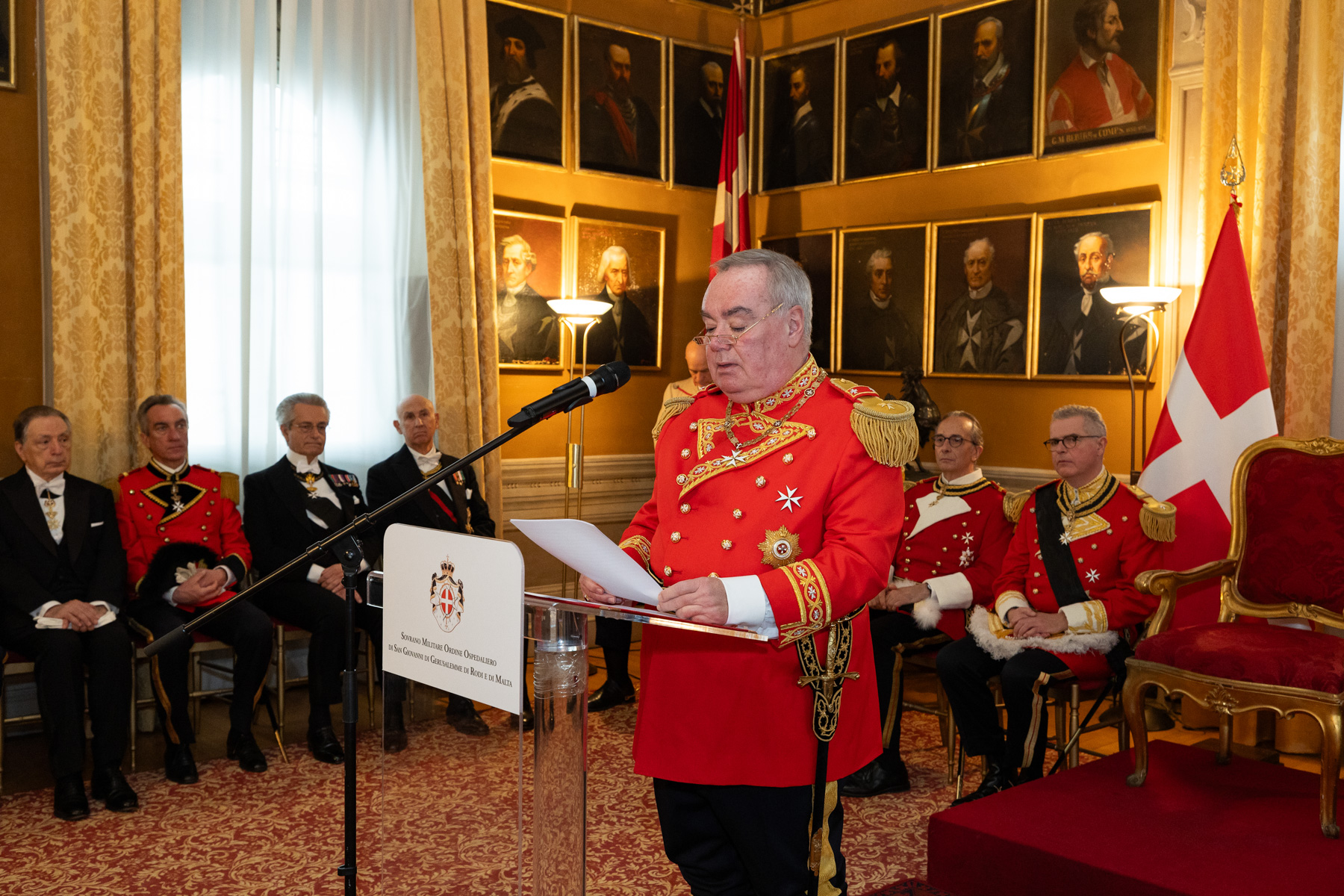
I should like to briefly discuss a little-known and infrequently-addressed subject: that of “Religious Diplomacy.” If one is to better understand the nature of the Order of Malta, the Order must be appreciated in all its facets: as a Religious Order in the Roman Catholic Church; as a Sovereign Entity under international law recognised by the United Nations and 113 countries around the world; and with a mission to serve the sick and the poor, from local soup kitchens to sophisticated international crisis relief. It, therefore, makes a great deal of sense that the Order would be active and interested in encouraging “Religious Diplomacy” in international circles.
Religions are a powerful source of inspiration and motivation for many individuals and groups around the world. At their best, religions can inspire humanity, despite all its fears, to go to extraordinary lengths to care for society’s most weak and vulnerable. A key part of Religious Diplomacy lies in inter-religious dialogue which is a fundamental component in the quest for Peace and Justice. The commitment and the outstanding efforts almost 100.000 volunteers of the Order of Malta around the world is an example of religion inspiring Peace and Justice. I wish to commend their work, especially those who are faced with risks and threats to their own safety, and I should like to recognise their faith-based motivations.
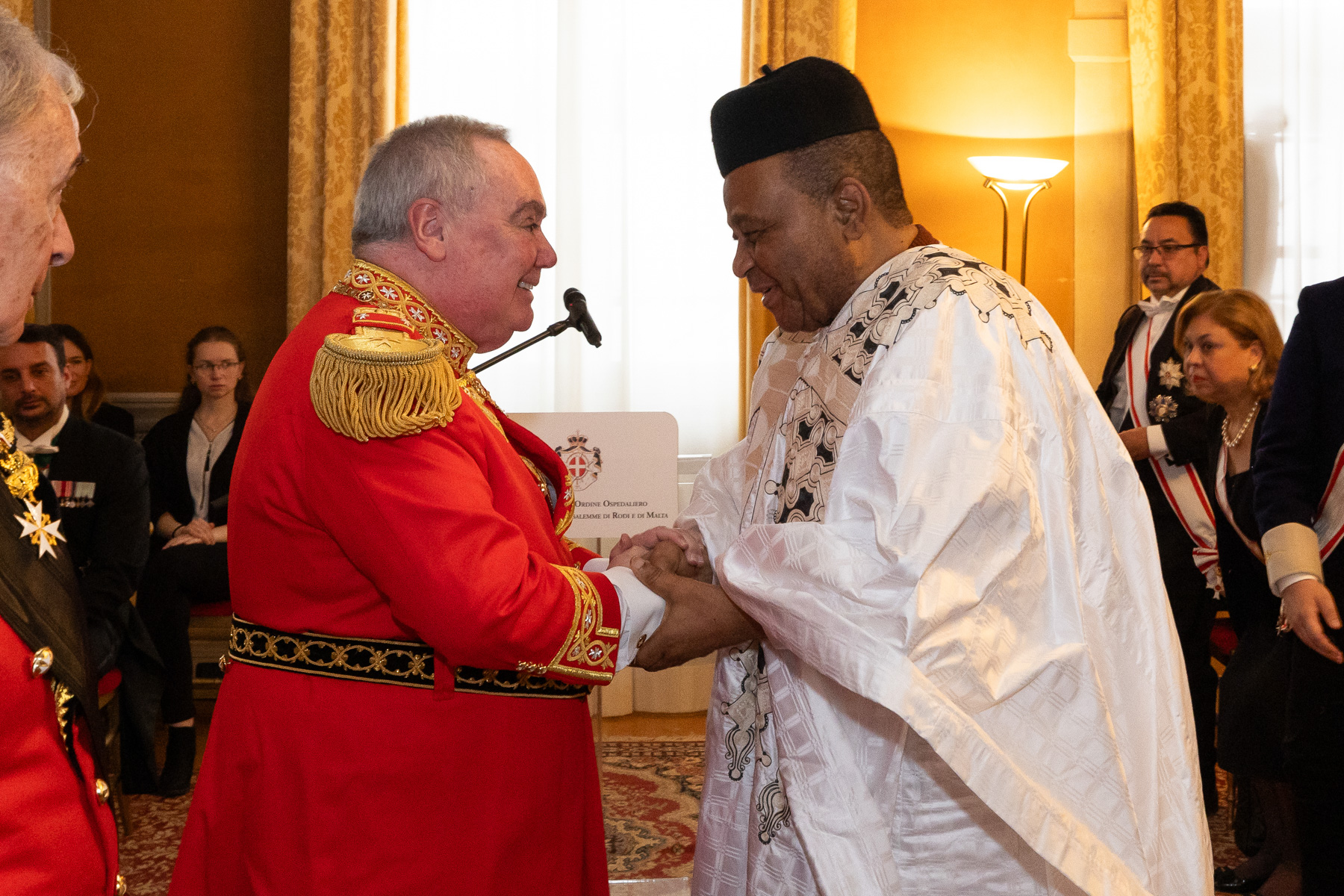
As I mentioned earlier, one of our priorities in the new Government is to strengthen the capabilities and the outreach of our diplomatic network. By doing so, we believe that we can promote the notion of Religious Diplomacy where secular entities can find common ground with faith-based ones, bringing greater harmony and a common sense of purpose to International diplomacy. For this purpose, we shall hold a conference of the Order’s Ambassadors at the end of this month, here at the Aventino. It will be a three-day event which will gather together all the Ambassadors and Special Envoys of the Order of Malta. They will discuss several topics, including some of the global themes most relevant to their activities, with the participation of outstanding external personalities.
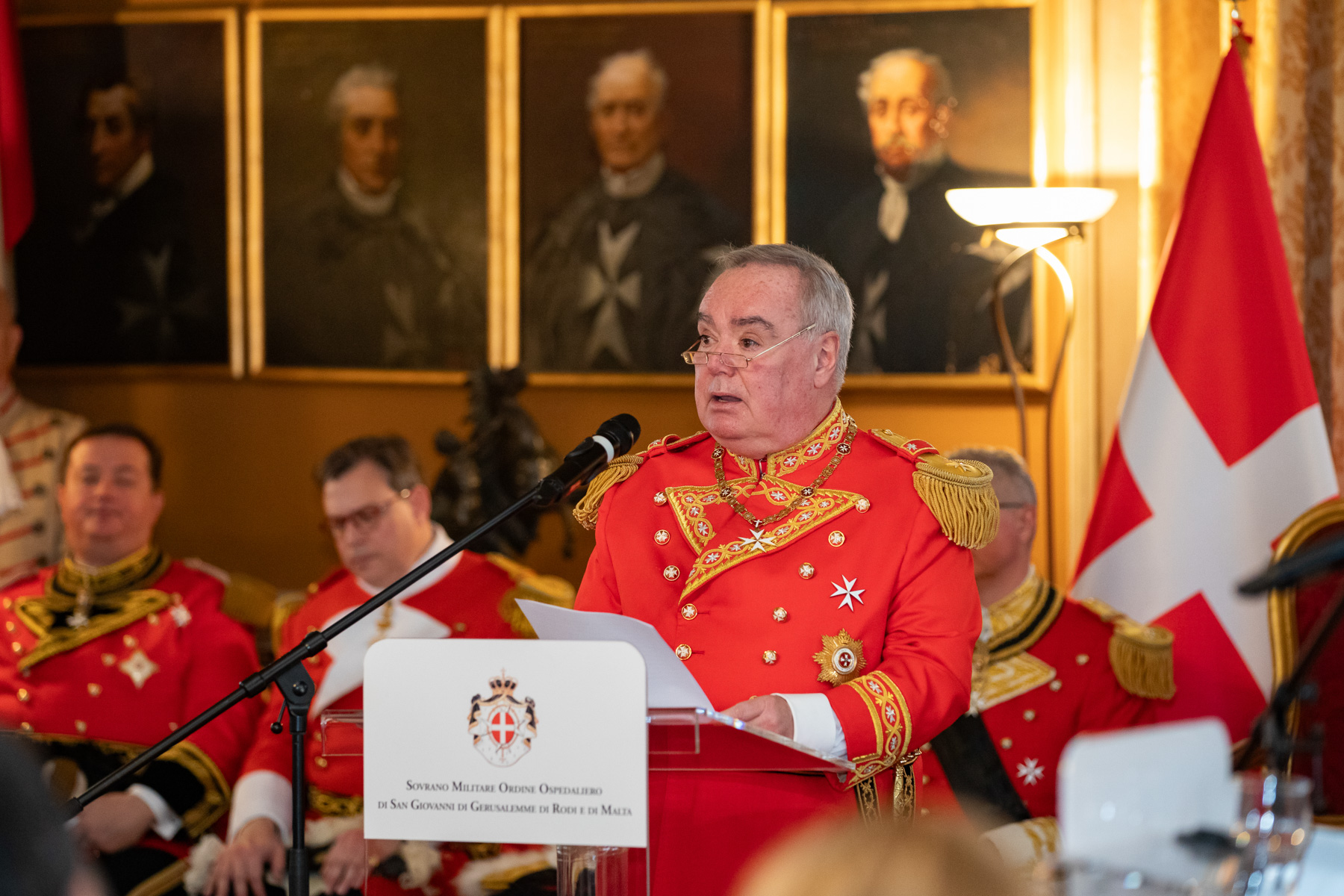
The Sovereign Order of Malta is one of the oldest institutions of Western and Christian civilisation. A lay religious order of the Catholic Church since 1113 and a subject of international law, the Sovereign Order of Malta has diplomatic relations with over 100 states and the European Union, and permanent observer status at the United Nations. It is neutral, impartial and apolitical.
Today, the Order of Malta is active in 120 countries caring for people in need through its medical, social and humanitarian works. Day-to-day, its broad spectrum of social projects provides a constant support for forgotten or excluded members of society.
It is especially involved in helping people living in the midst of armed conflicts and natural disasters by providing medical assistance, caring for refugees, and distributing medicines and basic equipment for survival.
